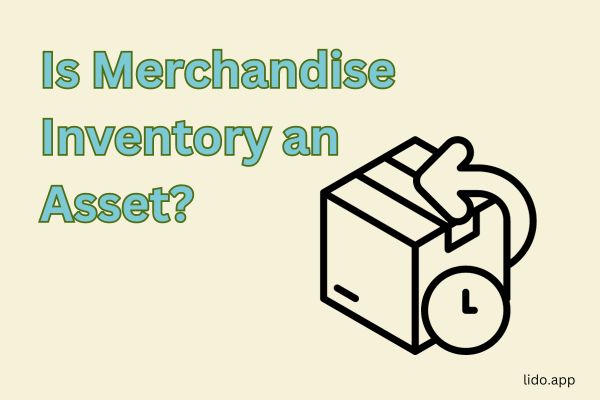In this article, we cover whether merchandise inventory is an asset. We also share five reasons why it is considered as one and when it is not. Read on to learn more.

Yes, merchandise inventory is considered an asset in accounting to represent goods a company intends to sell. It is classified under current assets on a company's balance sheet as it's expected to be converted into cash within a year of the company's operating cycle. Its valuation can be determined using methods like FIFO, LIFO, or average cost.
Example: Imagine you walk into "Books & Brews," a bookstore that also serves coffee. On the shelves, you find an array of books ranging from bestsellers to classics, and there's a delightful aroma of freshly brewed coffee in the air.
Scenario:
Financial Insight:
In this scenario, the merchandise inventory (the books) was a tangible asset for "Books & Brews." It represented potential sales and revenue. As the year progressed, this asset fluctuated based on sales and restocking to showcase its role in the financial dynamics of the business.

Here are some of the reasons explaining why merchandise inventory is considered an asset:
Merchandise inventory consists of goods that a business intends to sell. When these goods are sold, they generate revenue for the company. Hence, the presence of inventory indicates future sales and, by extension, future income.
Even though inventory is a tangible asset, it has the potential to be quickly converted into cash or cash equivalents (once sold). This potential for conversion enhances a company's liquidity position, making it easier for the business to meet short-term financial obligations.
In many financial transactions, especially when seeking loans or credit extensions, businesses can use their merchandise inventory as collateral. Lenders may view inventory as a valuable asset that can be liquidated to recover funds if the borrower defaults on the loan.
Having a sufficient merchandise inventory ensures that a business can continue its operations without interruptions. It prevents stockouts to ensure that customer demand can be met consistently, which in turn fosters customer trust and loyalty.
Buying and holding merchandise inventory can sometimes act as a hedge against market price fluctuations. If a business anticipates that the price of goods will rise in the future, they might stock up on inventory at current lower prices to secure a cost advantage for future sales.

While merchandise inventory is generally considered an asset, its classification and value can change based on certain conditions. Here are some scenarios where merchandise inventory might not be viewed as a typical or valuable asset:
If inventory items become outdated or obsolete (e.g., old electronic devices or expired products), they lose their selling value. Such items might not be saleable, or if they are, they might need to be sold at a significant discount.
If a company consistently overestimates the demand for certain products and overstocks them, these items might sit in the warehouse for extended periods. Such slow-moving inventory ties up capital and might not be easily convertible to cash, diminishing its asset value.
Perishable goods, like food or certain chemicals, can spoil over time. Other items can get damaged in storage. Such deteriorated or damaged inventory loses its full value as an asset.
If the market price of the inventory drops significantly after purchase, its value as an asset is reduced. This might be due to market saturation, technological advancements, or changing consumer preferences.
Inventory has associated costs like storage, insurance, and potential interest on borrowed funds used to purchase the inventory. If holding costs are excessively high relative to the potential sales value of the items, the net value of the inventory as an asset may be compromised.
We hope our article has now left you with a better understanding of when merchandise inventory is an asset and when it is not.
If you enjoyed this article, you might also like our article to determine if inventory is a fixed asset or our article to determine if inventory is a long term asset.